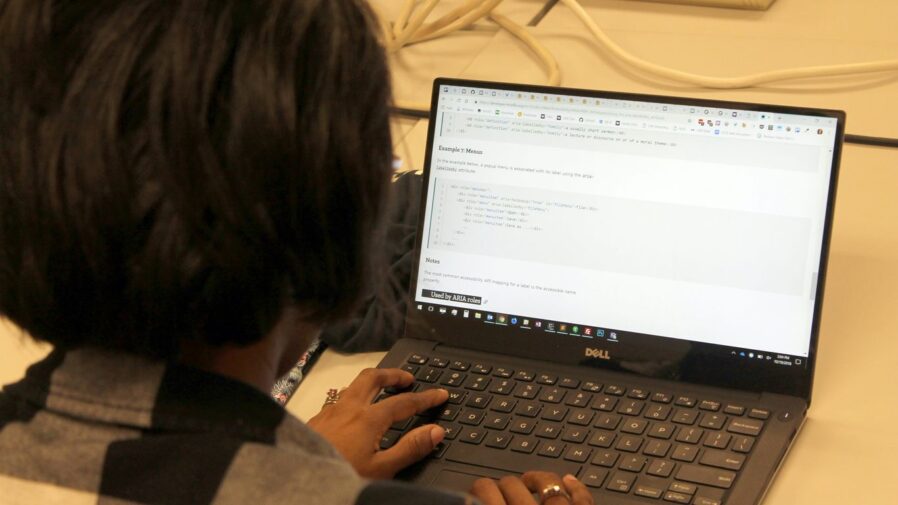So, you’re looking for an internship? That’s awesome. Getting your foot in the door often starts with a simple email, but man, it can feel like a big deal. You want it to be just right, you know? Like, not too casual, but not so stiff it sounds like a robot wrote it. We’ve all been there, staring at a blank screen, wondering how to even start. This guide is all about making that process less of a headache. We’ll break down how to write emails for internships that actually get noticed, helping you move from just hoping for an internship to actually landing one. Let’s figure this out together.
Key Takeaways
- Your first email is a big deal; make it count by being professional and clear.
- Do your homework on the company and the specific internship before you write anything.
- Structure your email logically: grab attention with the subject, be polite, state your case clearly, and wrap it up professionally.
- Show them what you can do by mentioning skills and giving examples, and prove you know who they are.
- Always include your resume and maybe a cover letter, and don’t forget to follow up politely if you don’t hear back right away.
Understanding The Importance Of Internship Emails
Think of your internship application email as your digital handshake. It’s often the very first interaction a potential employer has with you, and in the fast-paced world of hiring, first impressions really count. A well-written email can open doors, while a sloppy one might just get deleted before anyone even reads what you have to say. It’s not just about saying you want an internship; it’s about showing you’re serious, professional, and a good fit for their team.
Your First Impression: The Power of a Well-Crafted Email
When you send an email for an internship, you’re essentially presenting yourself in a professional light. This means paying attention to details like grammar, spelling, and how you structure your message. A clear, concise, and error-free email tells the recipient that you take your responsibilities seriously. It shows you have good communication skills, which are pretty important in almost any job.
- Clarity: Is your message easy to understand?
- Professionalism: Does it sound like you know what you’re doing?
- Attention to Detail: Did you proofread it carefully?
Getting these right from the start makes a big difference. It’s like showing up to an interview dressed appropriately – it shows respect for the process and the people involved.
Unlocking Opportunities Through Effective Communication
Beyond just making a good first impression, your email is your primary tool for communicating your interest and qualifications. It’s your chance to explain why you’re excited about a specific company or role and how your skills can benefit them. This is your opportunity to stand out from a crowd of applicants.
Here’s what an effective email can help you achieve:
- Getting Noticed: A compelling subject line and a well-written body can make a hiring manager want to learn more about you.
- Demonstrating Fit: You can show you’ve done your homework on the company and explain why you’re a good match for their culture and needs.
- Opening Dialogue: A strong email encourages the next step, whether that’s an interview request or a request for more information.
Essential Steps Before Writing Your Internship Email

Alright, so you’re ready to send out those internship emails. That’s awesome! But hold on a sec, before you even start typing, there are a few things you really need to get sorted. Think of it like prepping for a big presentation – you wouldn’t just walk up and start talking, right? Same idea here.
Thoroughly Researching The Company and Position
This is probably the most important part. You can’t just send a generic email to everyone. You need to know who you’re talking to and what they’re actually looking for. Spend some time on the company’s website. What do they do? What are their recent projects or news? What’s their mission statement? Also, really dig into the internship description itself. What skills are they asking for? What will you actually be doing day-to-day? Knowing these details helps you tailor your email so it speaks directly to their needs. It shows you’re not just looking for any internship, but their internship.
Identifying The Right Recipient and Their Title
Sending your email to the general ‘info@company.com’ address is usually a bad move. It’s like sending a letter to ‘Occupant’ – it probably won’t get read by the right person. Try to find out who is in charge of hiring interns or who manages the department you’re interested in. LinkedIn is your best friend here. Look for titles like ‘Hiring Manager,’ ‘Internship Coordinator,’ ‘HR Manager,’ or the head of the department you want to join. If you can find a specific name, even better! Addressing it to a person makes a huge difference. If you absolutely can’t find a name, a professional title like ‘Dear Hiring Manager’ is your next best bet. Getting this right shows you’ve done your homework and are serious about the application. For example, you might find a specific person by searching for ‘[Department Name] Manager at [Company Name]’.
Understanding Company Culture and Values
This ties back to research, but it’s worth its own point. Every company has its own vibe, its own way of doing things. Are they super formal, or more laid-back and creative? Do they emphasize teamwork, innovation, or customer service? Reading their ‘About Us’ page, checking out their social media, and even looking at employee reviews can give you clues. When you understand their culture and values, you can subtly weave that understanding into your email. It helps them see if you’d be a good fit not just skill-wise, but personality-wise too. It’s about showing you’re not just looking for a job, but a place where you can actually thrive and contribute positively.
Structuring Your Internship Email For Maximum Impact

So, you’ve done your homework, figured out who to talk to, and now it’s time to actually write the email. This is where you make your case, and honestly, it’s not as scary as it sounds. Think of it like a mini-sales pitch, but for you.
Crafting An Attention-Grabbing Subject Line
This is your first impression, so make it count. You want something clear and to the point. Nobody wants to guess what your email is about. Try something like "Computer Science Student Seeking Internship" or "Inquiry: Marketing Internship Opportunity." Adding your name can also help it stand out. It’s all about making it easy for the person reading it to know exactly what you want.
The Art Of A Professional Salutation
Start off right. If you know the hiring manager’s name, use it! "Dear Ms. Smith," or "Hello Mr. Jones," feels much more personal than a generic greeting. If you can’t find a name, "Dear Hiring Manager," is a safe bet. Just avoid anything too casual like "Hey there."
Writing A Compelling Email Body
This is the main part. You need to introduce yourself, say why you’re interested in this specific internship, and explain why you’d be a good fit. Mentioning something specific you admire about the company, like a recent project or their mission, shows you’ve done your research. For example, you could say, "I was really impressed by your recent work on [Project Name] and how it aligns with my interest in [Your Field]." Then, connect your skills and experiences to what they’re looking for. Don’t just list skills; give a brief example. If you’re applying for a social media role, you might mention, "In my previous volunteer work, I grew our club’s Instagram following by 20% in three months by creating engaging content." It’s about showing, not just telling. You can find great examples of how to phrase these points when you look into internship inquiry email examples.
Concluding Your Email With A Bang
Wrap it up professionally. Briefly restate your interest and thank them for their time. Mention that you’ve attached your resume and that you’re available for an interview. A good closing is something like "Thank you for your time and consideration. I look forward to hearing from you soon." Then, sign off with "Sincerely," or "Best regards," followed by your full name and contact information. Make sure all your details are correct so they can easily get in touch.
Showcasing Your Value In Internship Applications
So, you’ve got the email drafted, but how do you make sure the person reading it actually sees what you bring to the table? It’s not just about saying you’re good; it’s about showing them. Think of it like this: you wouldn’t just tell someone your favorite movie is "The Matrix," you’d probably mention the bullet time or Neo’s journey. Same idea here.
Highlighting Relevant Skills and Experiences
This is where you connect the dots between what you’ve done and what the internship needs. Don’t just list skills; give them context. Instead of saying "Proficient in Python," try something like, "Used Python to automate data cleaning for a university research project, reducing processing time by 30%."
- Technical Skills: Mention specific software, programming languages, or tools you know. If you used them in a project, even better.
- Soft Skills: Think about teamwork, communication, problem-solving. How have you demonstrated these? Maybe you led a group project or resolved a conflict within a club.
- Academic Achievements: Relevant coursework, strong grades in specific subjects, or research papers can show your foundational knowledge.
Demonstrating Company Knowledge and Interest
This part shows you’re not just sending out mass applications. You’ve actually taken the time to look into the company. Mention something specific you admire or find interesting about their work. Did they recently launch a new product? Are they known for a particular company value? Referencing this shows you’ve done your homework and are genuinely interested in them, not just any internship. It’s a great way to make your application stand out, and you can find plenty of information on a company’s website.
Providing Concrete Examples Of Achievements
Numbers and specific outcomes are your best friends here. Instead of saying "Improved social media engagement," try "Increased Instagram engagement by 15% over three months by implementing a new content strategy."
| Skill Area | Example Achievement |
|---|---|
| Project Management | Successfully managed a student event with 100+ attendees, staying 10% under budget. |
| Data Analysis | Analyzed customer feedback data to identify key areas for product improvement. |
| Content Creation | Wrote and edited blog posts that saw a 20% increase in reader shares. |
Remember, the goal is to paint a clear picture of your capabilities and enthusiasm. Make it easy for them to see why you’re a good fit.
Attaching Supporting Documents To Your Internship Email
So, you’ve written a killer email, but don’t forget the attachments! This is where you really back up your claims and give the hiring manager more to look at. Think of it as your digital portfolio, ready to impress.
Preparing A Tailored And Up-To-Date Resume
Your resume is probably the most important document you’ll send. Make sure it’s not just a generic list of everything you’ve ever done. Instead, tweak it for each internship you apply for. Highlight the skills and experiences that directly match what the job description asks for. If the internship is in marketing, bring your marketing projects to the forefront. Keep it current, too; no one wants to see outdated information. A well-formatted resume is key, and you can find some great tips on how to structure it effectively online.
Writing A Relevant Cover Letter
While your resume gives the facts, your cover letter tells the story. It’s your chance to expand on why you’re a good fit and show off your personality a bit. Explain why you’re interested in this specific company and this specific role. Mentioning something you admire about their work or a recent project can really make you stand out. It’s also a good place to explain any gaps or unique experiences that might not fit neatly on your resume. Think of it as a conversation starter.
Including Additional Materials If Applicable
Sometimes, you might have other things that could help your application. This could be a link to your online portfolio if you’re in a creative field, or maybe a letter of recommendation from a professor or previous supervisor. Only include these if they genuinely add something to your application and are relevant to the internship. Don’t just attach things for the sake of it; make sure they support your case. It’s all about showing you’re a serious candidate.
The Crucial Role Of Following Up On Internship Emails
So, you’ve sent off that internship application email. Great job! But what happens next? Often, you won’t hear back right away, and that’s totally normal. This is where the follow-up email comes in, and honestly, it’s a pretty big deal.
When And How To Send A Follow-Up Email
If you haven’t heard anything back after about a week or so, it’s usually a good time to send a polite follow-up. Think of it as a gentle nudge. Your follow-up email should be short and to the point. You want to remind them who you are and that you’re still really interested in the internship. It’s also a good chance to mention anything new you’ve learned or accomplished since you first applied, like a new skill or a relevant project you finished. Just keep it professional and friendly.
Maintaining Persistence Without Being Pushy
This is a tricky balance, right? You want them to remember you, but you definitely don’t want to annoy them. Sending one or maybe two follow-up emails is generally fine. If you send too many, it can actually hurt your chances. It shows you might not understand professional boundaries. So, space them out a bit, and always be polite. Think about it like this:
- First Email: The initial application.
- First Follow-Up: Sent about 7-10 days after the first email if no response.
- Second Follow-Up (Optional): Sent another 7-10 days after the first follow-up, if still no response.
After that, it’s probably best to assume they’re not moving forward with your application for this particular role.
Knowing When To Move On After Follow-Ups
Sometimes, despite your best efforts, you just won’t get a reply. It happens. If you’ve sent a couple of polite follow-ups and still haven’t heard anything after a few weeks, it’s probably time to accept that this opportunity might not be the right fit, or they’ve already filled the position. It’s disappointing, for sure, but it’s also a signal to focus your energy on other internships. Don’t take it personally; the job market can be competitive, and sometimes it’s just about timing or a high volume of applicants. Keep applying, keep following up appropriately, and you’ll find the right opportunity.
Real-Life Examples And Best Practices For Internship Emails
So, you’ve got the basics down, but seeing how it all comes together in practice is super helpful, right? Let’s look at some actual examples and talk about what makes them work. It’s not just about knowing the rules; it’s about seeing them in action.
Internship Inquiry Email Example
When you’re reaching out without a specific job posting, you’re essentially making an inquiry. Think of it like this: you’re introducing yourself and seeing if there’s a potential fit.
Subject Line: Computer Science Student Seeking Internship Opportunities at XYZ Tech
Dear Mr./Ms. [Last Name],
I hope this email finds you well. My name is [Your Name], and I’m a third-year Computer Science student at ABC University. I recently came across XYZ Tech while researching companies in the AI space, and I was really impressed by your work, especially your innovative approach to [mention a specific project or area]. It aligns perfectly with what I’m passionate about and what I’m learning in my studies.
At university, I’ve been building my skills in coding, machine learning, and algorithm development. I’ve also worked on team projects and hackathons, which have taught me a lot about collaboration and problem-solving. I’m eager to apply these skills in a real-world setting.
I’m particularly interested in XYZ Tech because of your reputation for giving interns hands-on experience and good mentorship. I believe I could learn a lot from your team and also contribute positively.
I’ve attached my resume for your review. I’d appreciate the chance to talk more about how I might fit into your internship program.
Best regards,
[Your Full Name]
[Your Contact Information]
Subject Line Samples For Internship Emails
Your subject line is like the headline of a newspaper – it needs to grab attention fast. Here are a few ideas:
- Exploring Internship Opportunities: [Your Major] Student Interested in [Company Name]
- [Your University] Student Seeking [Internship Role] at [Company Name]
- Aspiring [Internship Role] Intern Eager to Contribute to [Company Name]
- Passionate [Your Major] Student Seeking [Internship Role] Experience with [Company Name]
Common Pitfalls To Avoid In Internship Emails
It’s easy to make mistakes when you’re new to this. Here are some common things people get wrong:
- Generic Emails: Sending the same email to everyone without tailoring it. Companies can spot this a mile away. Always do your homework on the company and mention something specific.
- Typos and Grammatical Errors: This is a big one. It shows a lack of attention to detail. Always proofread, and maybe even have a friend look it over. A well-written cover letter makes a difference.
- Vague Language: Instead of saying you have
Wrapping It All Up
So, you’ve learned how to research companies, structure your emails, and even follow up. It’s a lot, I know, but think of it as building blocks for your career. Each email you send is a chance to make a good impression. Don’t get discouraged if you don’t hear back right away; persistence is key. Keep refining your approach, tailor each message, and remember to proofread. Your dream internship is out there, and a well-written email is a big step toward finding it. Good luck!
Frequently Asked Questions
Why is writing a good email important for internships?
Your email is like your first handshake with a company. A well-written email shows you’re serious and professional, making a great first impression that can help you get an interview.
What should I do before I even start writing my internship email?
Before writing, do your homework! Learn about the company, what they do, and what their vibe is like. Also, try to find out who the right person to email is and their job title.
How do I make my internship email stand out?
Start with a clear and interesting subject line. Then, write a friendly but professional greeting. In the email body, explain why you’re a good fit, mention something specific you like about the company, and show off your best skills with examples.
What documents should I include with my internship email?
Always attach your resume, making sure it’s updated and fits the internship. If they ask for it, include a cover letter that explains more about why you’re perfect for the job. Sometimes, you might also add other things like project examples.
Should I follow up if I don’t hear back after sending my email?
Yes, following up is a good idea! Wait about a week after sending your first email. Send a polite reminder to show you’re still interested. But don’t follow up too many times, or it might seem annoying.
What are some common mistakes to avoid in internship emails?
Avoid using casual email addresses, writing unclear subject lines, or making spelling and grammar mistakes. Also, don’t send the same generic email to every company; always try to make it personal to show you’ve done your research.














